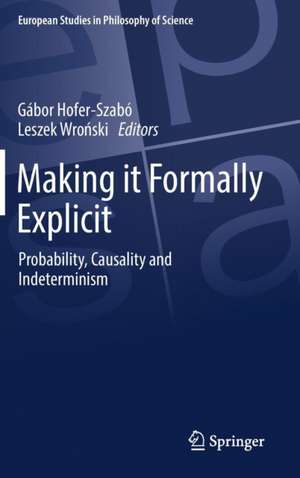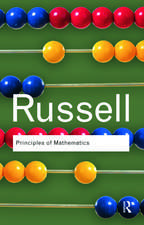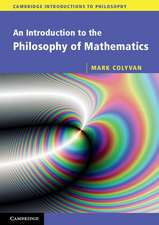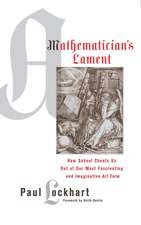Making it Formally Explicit: Probability, Causality and Indeterminism: European Studies in Philosophy of Science, cartea 6
Editat de Gábor Hofer-Szabó, Leszek Wrońskien Limba Engleză Hardback – 20 apr 2017
Coverage consists of three parts. Part I focuses on the notion of probability from a general philosophical and formal epistemological perspective. Part II applies probabilistic considerations to address causal questions in the foundations of quantum mechanics. Part III investigates the question of indeterminism in spacetime theories. It also explores some related questions, such as decidability and observation.
The contributing authors are all philosophers of science with a strong background in mathematics or physics. They believe that paying attention to the finer formal details often helps avoiding pitfalls that exacerbate the philosophical problems that are in the center of focus of contemporary research.
The papers presented here help make explicit the mathematical-structural assumptions that underlie key philosophical argumentations. This formally rigorous and conceptually precise approach will appeal to researchers and philosophers as well as mathematicians and statisticians.
| Toate formatele și edițiile | Preț | Express |
|---|---|---|
| Paperback (1) | 942.76 lei 6-8 săpt. | |
| Springer International Publishing – 9 mai 2018 | 942.76 lei 6-8 săpt. | |
| Hardback (1) | 948.79 lei 6-8 săpt. | |
| Springer International Publishing – 20 apr 2017 | 948.79 lei 6-8 săpt. |
Preț: 948.79 lei
Preț vechi: 1157.06 lei
-18% Nou
Puncte Express: 1423
Preț estimativ în valută:
181.61€ • 197.33$ • 152.65£
181.61€ • 197.33$ • 152.65£
Carte tipărită la comandă
Livrare economică 21 aprilie-05 mai
Preluare comenzi: 021 569.72.76
Specificații
ISBN-13: 9783319554853
ISBN-10: 3319554859
Pagini: 242
Ilustrații: XIV, 242 p. 15 illus.
Dimensiuni: 155 x 235 x 16 mm
Greutate: 0.54 kg
Ediția:1st ed. 2017
Editura: Springer International Publishing
Colecția Springer
Seria European Studies in Philosophy of Science
Locul publicării:Cham, Switzerland
ISBN-10: 3319554859
Pagini: 242
Ilustrații: XIV, 242 p. 15 illus.
Dimensiuni: 155 x 235 x 16 mm
Greutate: 0.54 kg
Ediția:1st ed. 2017
Editura: Springer International Publishing
Colecția Springer
Seria European Studies in Philosophy of Science
Locul publicării:Cham, Switzerland
Cuprins
Part I. Probability and chance-credence norms.- Chapter 1. Can Bayesian agents always be rational? A principled analysis of consistency of an Abstract Principal Principle (Miklós Rédei and Zalán Gyenis).- Chapter 2. Does the Principal Principle imply the Principle of Indifference? (Balázs Gyenis and Leszek Wroński).- Chapter 3. A Mathematical Approach to Lewis’ Principal Principle - An Analysis through Examples (Gergei Bana).- Chapter 4. Three methods for solving the problem of inconsistent marginals in data integration (Christian Wallmann and Jon Williamson).- Part II. Structures for quantum experiments.- Chapter 5. Separate common causes and EPR correlations – an ``almost no-go'' result (Tomasz Placek, Leszek Wroński and Michał Tomasz Godziszewski).- Chapter 6. On quantum nonlocal correlations and probability spaces used to model them (Márton Gömöri and Tomasz Placek).- Chapter 7. Reichenbachian common cause systems of size 3 in general probability theories (Yuichiro Kitajima).- Chapter 8. Two Sources of Non-locality in Quantum Mechanics? (Iñaki San Pedro).- Part III. Indeterminism, Undecidability, and Macrostates.- Chapter 9. On the semantics of spacetime theories (László E. Szabó).- Chapter 10. Indeterminism, Gravitation, and Spacetime Theory (Samuel C. Fletcher).- Chapter 11. Extendible maximal globally hyperbolic spacetimes in classical general relativity: a philosophical survey (Juliusz Doboszewski).- Chapter 12. On the emergence of macrostates (Márton Gömöri, Balázs Gyenis, Gábor Hofer-Szabó).- Chapter 13. Experimental Logics as a Model of Development of Deductive Science and Computational Properties of Undecidable Sentences (Michał Tomasz Godziszewski)
Notă biografică
Gábor Hofer-Szabó is a Senior Research Fellow in the Institute of Philosophy, Research Center for the Humanities at the Hungarian Academy of Sciences. His main fields of research are foundations of quantum mechanics, interpretations of probability and probabilistic causality.
Leszek Wroński is an Associate Professor at the Institute of Philosophy of the Jagiellonian University in Kraków. He is mainly interested in formal epistemology and philosophy of probability, having authored and co-authored also papers on probabilistic causality and the Branching Space-Times theory.
Textul de pe ultima copertă
This book collects research papers on the philosophical foundations of probability, causality, spacetime and quantum theory. The papers are related to talks presented in six subsequent workshops organized by The Budapest-Kraków Research Group on Probability, Causality and Determinism.
Coverage consists of three parts. Part I focuses on the notion of probability from a general philosophical and formal epistemological perspective. Part II applies probabilistic considerations to address causal questions in the foundations of quantum mechanics. Part III investigates the question of indeterminism in spacetime theories. It also explores some related questions, such as decidability and observation.
The contributing authors are all philosophers of science with a strong background in mathematics or physics. They believe that paying attention to the finer formal details often helps avoiding pitfalls that exacerbate the philosophical problems that are in the center of focus of contemporary research.
The papers presented here help make explicit the mathematical-structural assumptions that underlie key philosophical argumentations. This formally rigorous and conceptually precise approach will appeal to researchers and philosophers as well as mathematicians and statisticians.
Coverage consists of three parts. Part I focuses on the notion of probability from a general philosophical and formal epistemological perspective. Part II applies probabilistic considerations to address causal questions in the foundations of quantum mechanics. Part III investigates the question of indeterminism in spacetime theories. It also explores some related questions, such as decidability and observation.
The contributing authors are all philosophers of science with a strong background in mathematics or physics. They believe that paying attention to the finer formal details often helps avoiding pitfalls that exacerbate the philosophical problems that are in the center of focus of contemporary research.
The papers presented here help make explicit the mathematical-structural assumptions that underlie key philosophical argumentations. This formally rigorous and conceptually precise approach will appeal to researchers and philosophers as well as mathematicians and statisticians.
Caracteristici
Explores the philosophical foundations of probability, causality, spacetime and quantum theory Features a formally rigorous and conceptually precise approach Helps make explicit the mathematical-structural assumptions that underlie key philosophical argumentations













![Maths Frameworking -- Pupil Book 3.1 [Third Edition]](https://i2.books-express.ro/bt/9780007537778/maths-frameworking-pupil-book-3-1-third-edition.jpg)













